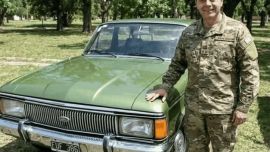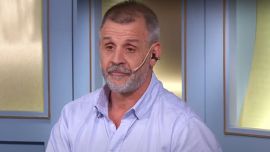Vice-President Cristina Fernández de Kirchner is clearly not superstitious – she has chosen May 13 for the year’s first Senate session, following negotiations with the opposition over the rules for virtual procedure.
The former president, who served as head of state from 2007 to 2015, had taken the Supreme Court’s recent April 24 ruling that it had no business in setting legislative branch rules as a green light to make her own, leading the push for the upper house to hold videoconference sessions and return to work.
According to reports, Fernández de Kirchner had originally envisioned herself as the only person in the chamber, orchestrating all the senators via a videoconference session from the legislative chambers of their provinces. But the Juntos por el Cambio opposition coalition argued for a scaling down of her protocol and the acceptance of other Senate authorities who might replace her.
Throughout last week the system for this unprecedented Senate session via remote control was tested – it has already been used for committee meetings but online voting has yet to be incorporated into the system.
In rejecting the vice-president’s protocol, the Juntos por el Cambio had demanded that the sessions be organised on the same basis as the lower house – i.e. with each caucus physically represented within the limits of social distance (around 15 of the 72 senators) with the remainder following via videoconference.
As for the lower house, its own agenda is currently under discussion but it will return to activity next Thursday. Government-aligned lawmakers are eager to open debate on its proposed wealth tax initiative, though the text of the bill is not yet finalised. Given that state of affairs, an initiative for small and medium businesses is likely to be the first item up for debate, congressional sources told local outlets on Tuesday.
Officials have created a guide with practical recommendations for those deputies attending Congress and advisers who work in and around the lower house. Before entering the premises, all individuals will be checked for fever and coronavirus symptoms. Once inside, everyone will be asked to keep a distance of two metres from each other (both "vertically" and "horizontally," with pre-organised "corridors" set up to allow movement of deputies and last-minute horse trading between lawmakers.
'Gain less'
President Alberto Fernández met with his vice-president at Olivos presidential residence on Tuesday with an agenda reportedly topped by debt negotiations (with the deadline for creditor acceptance of Argentina’s offer on restructuring US$66 billion expiring Friday), the recent uproar over the release of convicts and the question of whether and how to extend the nationwide quarantine beyond tomorrow.
On Monday President Fernández commented on all three issues in a TN television interview when he also praised the vice-president’s son Máximo Kirchner for his capacity for dialogue (further praising the new incoming ANSES social security administration chief, Fernanda Raverta, for her “great honesty, commitment and knowhow”). Regarding the debt, he insisted that creditors “would not lose by [his government’s] offer, only gain less,” while denying any default intentions.
Probed again on the issue, Fernández pinned the responsibility for the controversial release of sometimes dangerous prisoners on judicial decisions, not government policy and said that he would lift quarantine gradually in order to return to normal life but with extreme caution as the person responsible for Argentine lives.
– TIMES/PERFIL




















Comments